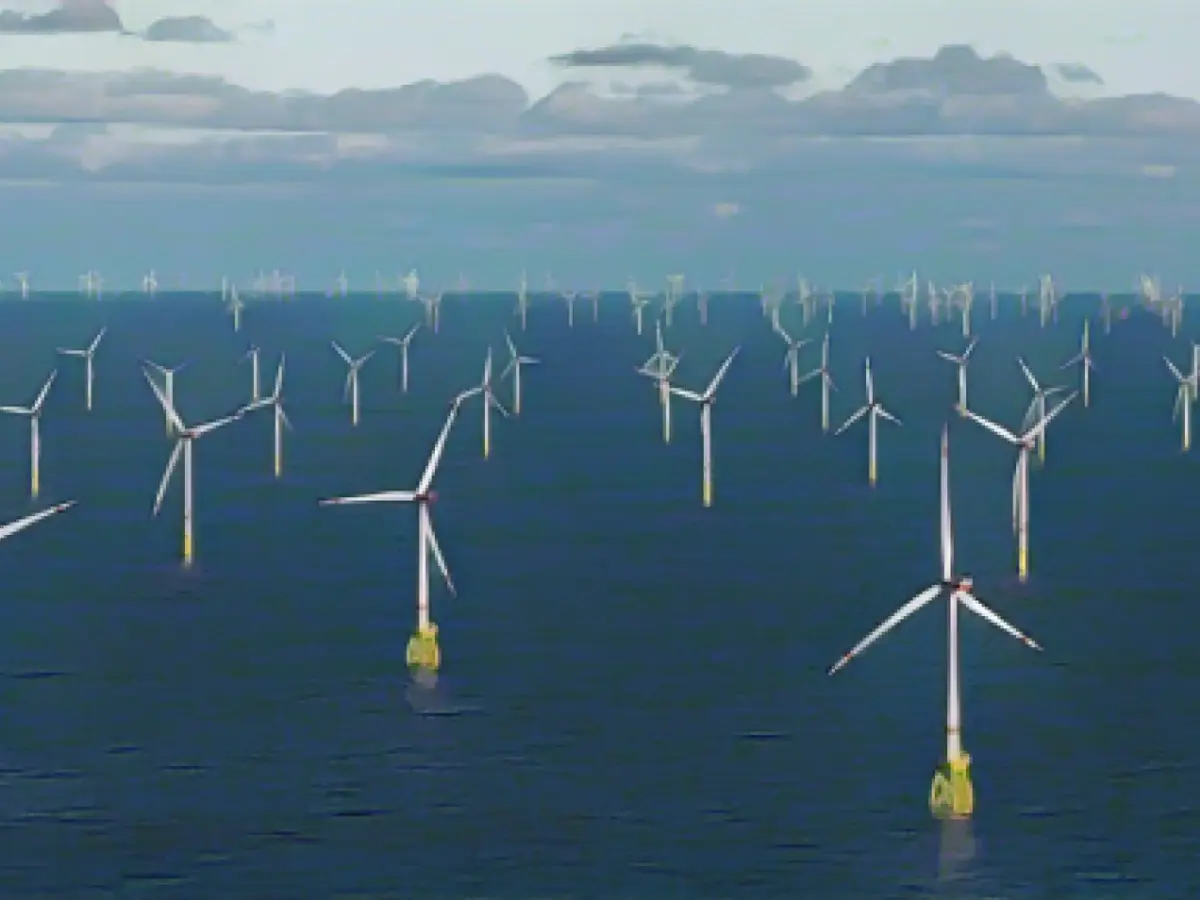Wind Power Expansion Needs More Port Space in Germany
Offshore wind energy may require up to 200 hectares of extra heavy-duty port space in Germany, as per recent estimations. This equates to a parking lot capable of holding 260,000 cars or 270 football fields, according to analysis by the Offshore Wind Energy Foundation. These investments are projected to reach billions in the next few years.
The role of seaports in offshore wind energy is significant. According to Karina Würtz, the Managing Director of the foundation, "Seaports serve as central hubs for offshore wind energy, providing a base for constructing and dismantling wind farms, operating and maintaining, storing, and producing. They play a multifunctional role in the offshore wind energy sector."
Germany aims to increase its offshore wind power capacity to 30 gigawatts (GW) by 2030 and 70 GW by 2045. This translates to an expansion of 62 GW over the next 12 years, which will necessitate the installation of thousands of new wind turbines.
The Dutch and Danish ports of Eemshaven and Esbjerg have focused on the offshore wind sector in recent years, giving them a significant market share surge. However, the capacities of foreign ports may not be sufficient to support the German expansion by 2027.
Ports are crucial for the development of offshore wind energy in Germany, along with its neighboring regions like Bremen, Mecklenburg-Vorpommern, Schleswig-Holstein, and Lower Saxony, due to their seaports. Facing intense competition and demanding expansion, Germany must invest in suitable infrastructure to support its offshore wind energy goals.
More Insights:
For Germany and other European countries keen on meeting the growing demand for additional port areas due to offshore wind energy expansion, there are various strategic approaches to consider:
- Integrated Planning and Collaboration
- Strategic Management of Port Capacity
- Investment in Specialized Facilities
- Port Retrofits and Compatibility
- Long-Term Project Management
- International Collaboration and Knowledge Sharing
- Regulatory Framework and Funding Programs
- Decarbonization Efforts
Implementing these strategies can help Germany and other European nations efficiently manage competition among seaports, address the growing demand for additional port areas, and make the necessary investments to support the expansion of offshore wind energy.
(Sources: . Enrichment Data provided only as a reference to deepen insight on the topic.))








